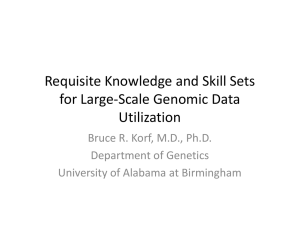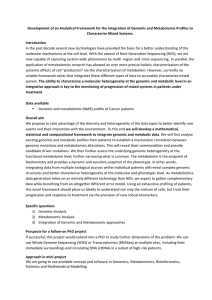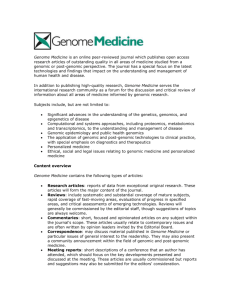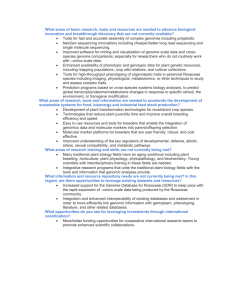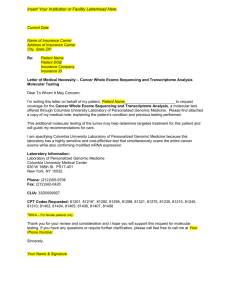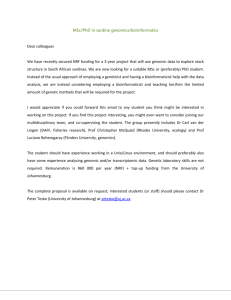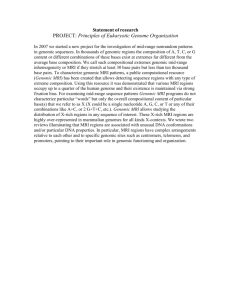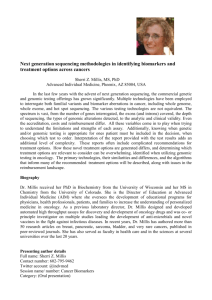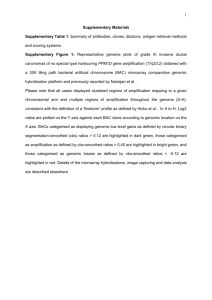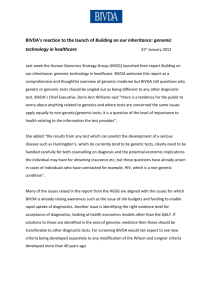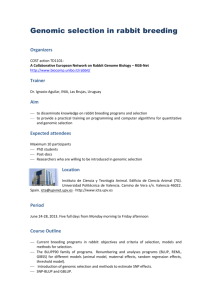Title: Estimation of the evolution history of a population from
advertisement
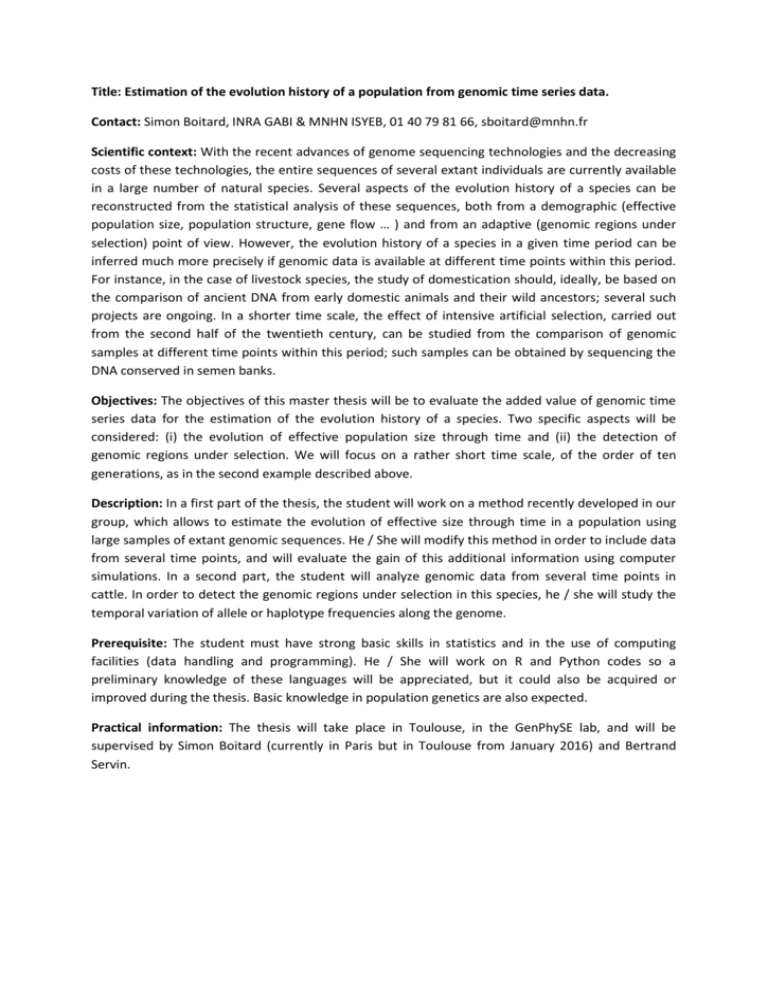
Title: Estimation of the evolution history of a population from genomic time series data. Contact: Simon Boitard, INRA GABI & MNHN ISYEB, 01 40 79 81 66, sboitard@mnhn.fr Scientific context: With the recent advances of genome sequencing technologies and the decreasing costs of these technologies, the entire sequences of several extant individuals are currently available in a large number of natural species. Several aspects of the evolution history of a species can be reconstructed from the statistical analysis of these sequences, both from a demographic (effective population size, population structure, gene flow … ) and from an adaptive (genomic regions under selection) point of view. However, the evolution history of a species in a given time period can be inferred much more precisely if genomic data is available at different time points within this period. For instance, in the case of livestock species, the study of domestication should, ideally, be based on the comparison of ancient DNA from early domestic animals and their wild ancestors; several such projects are ongoing. In a shorter time scale, the effect of intensive artificial selection, carried out from the second half of the twentieth century, can be studied from the comparison of genomic samples at different time points within this period; such samples can be obtained by sequencing the DNA conserved in semen banks. Objectives: The objectives of this master thesis will be to evaluate the added value of genomic time series data for the estimation of the evolution history of a species. Two specific aspects will be considered: (i) the evolution of effective population size through time and (ii) the detection of genomic regions under selection. We will focus on a rather short time scale, of the order of ten generations, as in the second example described above. Description: In a first part of the thesis, the student will work on a method recently developed in our group, which allows to estimate the evolution of effective size through time in a population using large samples of extant genomic sequences. He / She will modify this method in order to include data from several time points, and will evaluate the gain of this additional information using computer simulations. In a second part, the student will analyze genomic data from several time points in cattle. In order to detect the genomic regions under selection in this species, he / she will study the temporal variation of allele or haplotype frequencies along the genome. Prerequisite: The student must have strong basic skills in statistics and in the use of computing facilities (data handling and programming). He / She will work on R and Python codes so a preliminary knowledge of these languages will be appreciated, but it could also be acquired or improved during the thesis. Basic knowledge in population genetics are also expected. Practical information: The thesis will take place in Toulouse, in the GenPhySE lab, and will be supervised by Simon Boitard (currently in Paris but in Toulouse from January 2016) and Bertrand Servin.
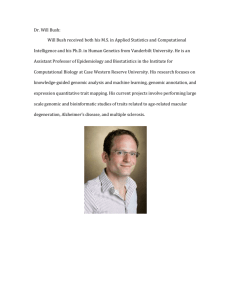

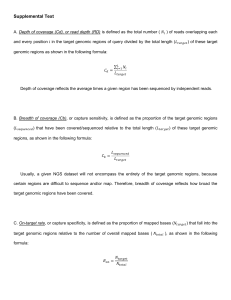
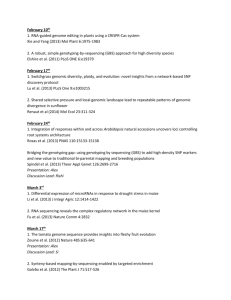
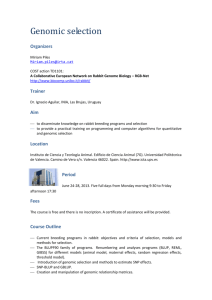
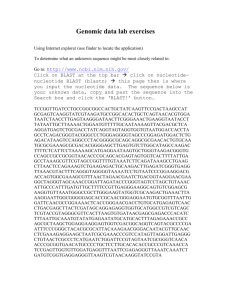
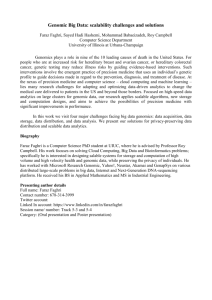

![[CLICK HERE AND TYPE TITLE]](http://s3.studylib.net/store/data/006976800_1-b48532bf46d7920073d6deb9d3a42a9f-300x300.png)
